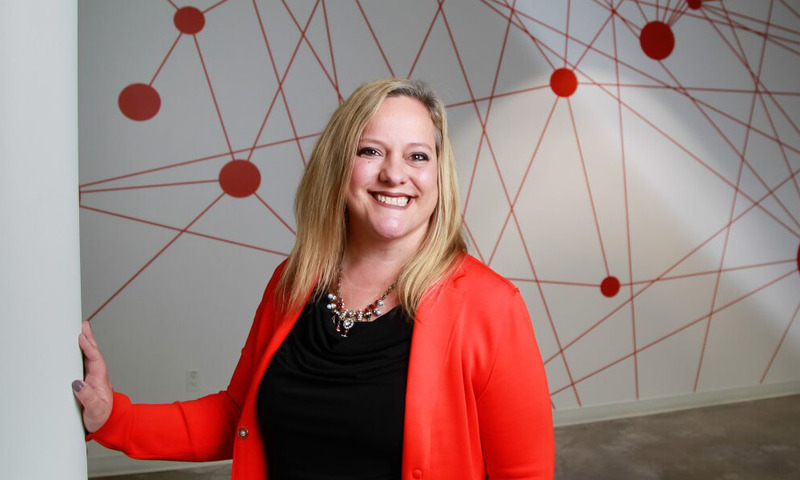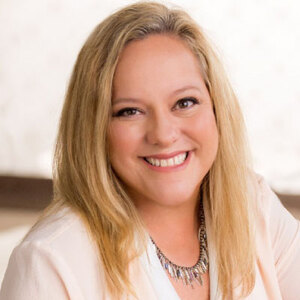Dr. Silvia Mah, newly-appointed Director of Biola’s Office of Innovation, spoke at a Crowell Distinguished Speaker event this semester. Originally from Caracas, Venezuela, she is a founding partner of Ad Astra Ventures, the Director of the Center for Peace & Commerce at the University of San Diego, the founder and chair of Stella Labs, a member of the investment committee at Next Wave Impact, and an angel investor to over 120 startups.
Here, Mah shares five pieces of wisdom.
1. Let your curiosity feed your passion
“As an international student at Pepperdine, I really dove into science. I was so curious: I wanted to learn about the scientific process and to look at different problems out there in the world. I was trying to do as much research and figure out as many things and take all the opportunities that I could in this new country and this new university.
I learned from my father — he emigrated from Italy to Venezuela — that even if they take away everything from you, they cannot take your education, so after my biology degree, I decided to get a PhD at the Scripps Institution of Oceanography. I did a lot of bioinformatics, I asked questions, I did data analyses. It became a theme in my life that continues today — analyzing data and trends in ecosystems, in the economy, in science.
That curiosity carried over to business development and innovation and commercialization, wanting to understand the science and the data and use it to make the world better. It wasn’t curiosity for curiosity's sake — as a dedicated Christian, the questions were always how can this all fit together and how can I make this world a better place?”
2. Build your career around your values
“Once we had children, I wanted to set up a career that would allow me to make family a priority but also feed my curiosity and my love for innovation. So I started an MBA, to broaden my understanding of how science and startups and business could come together. The MBA also forced me to think about specific aspects, like business plans and leadership and why mentoring is important.
When my father passed away, I returned to Caracas for two years to take over his business. I received an inheritance, and I wanted to use it wisely and invest in the change that I wanted to see in the world. I realized pretty quickly that the startup ecosystem had a dearth of women, few BIPOC founders, and entrepreneurial university students were shut out completely. So that became my investment thesis: seed-stage companies, industry-agnostic, but the founder had to be from an underrepresented group, including gender and ethnicity. So now, 12 years later, I have 120 companies in my portfolio, all founded by underrepresented people.”
3. Entrepreneurs should foster an abundance mindset and lead well
“An abundance mindset is an important leadership quality. Leadership is optimistic and positive. As an investor, I have the best conversations with entrepreneurs who really want to build wealth with their investors. An abundance mindset is a win-win — as an investor, I want to make your company shine because you're doing something important, and I want to make money so I can invest in more and more founders like you. When that happens, the ecosystem goes and goes and goes.
Related to that is learn, lead, lift. Leadership should be inspiring and supportive and create a culture that lifts not just your employees but all involved. If you're an investor, you want to lift entrepreneurs; if you have customers, you want to lift them. If your customers see you doing a really great job of leading, they'll likely be loyal and tell their friends. It ties closely to having an abundance mindset and a higher purpose.”
4. Be driven by a higher purpose
“I get some pushback from non-believers about higher purpose. But whenever I talk to impact investors, they're already most of the way there. They want to invest in innovation that has a return on making this world a better place, by being more environmentally friendly, or equalizing economic advantages, or democratizing education. That is a higher purpose than just return-on-investment or product-market fit. So when I'm talking about higher purpose to investors, I'm really talking about impact.
As believers, of course, we know that this "higher purpose" has a still-higher purpose. For us, we want to impact the world because our Lord and savior is at the forefront of every decision we make, and we have empathetic hearts that love God and love people. But my investors don't need to come up to that level with me; they just need to recognize that it's not just about immediate ROI, because higher-purpose entrepreneurship means being really sustainable, which means a higher return on impact.”
5. Your attitude matters as much as your ability
“Putting others before self is Servant Leadership 101. It’s the empathy piece of learning and leading and listening to people and recognizing that your startup is growing not just because of you and your ego. Again, if you embrace abundance and higher purpose, this comes pretty easily.
I've done lots of investing and started different accelerators and seen lots of start-ups. Some launch a ‘thing’ — maybe a new and better widget — but to me those never really amount to anything. Sure, maybe you get a one or two ‘X’ return. But I'm looking for the ones that aim at making an impact, the ones that serve, the ones that lead by example, the ones that have an abundance mindset and develop sustainability goals.
If you're a business student or a new entrepreneur, sustainability may seem like an exercise; it's part of the deal, I need to do it, but it's not important. But you need to see that it's crucial, and you really need to do it right. You want investors to say, ‘Yes, I want to invest in that business. It has a market, it has a sustainability plan, and it has a founder who has a value system that I want to invest in.’ In the seed round of entrepreneurship, investors focus on the founder. And that is the time when your character and servant leadership attitude can shine.”
 Biola University
Biola University


.jpg)
.jpg)
